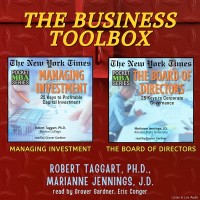Key 1. Every business should have a mission.
Key 2. Every business needs to define what the business does and identify a market opportunity.
Key 3. The entrepreneur must identify the external factors that may have an impact on the business.
Key 4. Business success depends on analyzing the nature and contemplating the future of the business.
Key 5. The business idea determines the key factors that result in business success.
Key 6. The major strengths of the business should be identified in detail.
Key 7. The major weaknesses of the business should be identified in detail.
Key 8. A complete business plan should be prepared.
Key 9. The business plan should be specific and well written.
Key 10. Financial statements are the heart of the business plan.
Key 11. A strategic plan should be developed to determine what products or services the business is going to offer.
Key 12. An operating plan should be prepared to determine how to run the business effectively.
Key 13. The first year of operations is an important time for a new enterprise.
Key 14. Growth strategies may be affected by the goals and objectives of the business.
Key 15. There is no law that requires a business to grow.
Key 16. Simple growth calculations are easy to make and should be a focal point for the entrepreneur.
Key 17. Growth calculations may be expanded to include return on investment (ROI) analysis.
Key 18. Long-term growth may depend on the ability to get long-term financing.
Key 19. Operating leverage is a key element in determining the riskiness of a business.
Key 20. Deciding when and how the business reaches the break-even point is critical to its success.
Key 21. Trade credit is often overlooked as a key source of short-term financing.
Key 22. Bank financing may be available to certain businesses.
Key 23. Factoring may be an important source of funds available to a new business.
Key 24. Selling common stock to outsiders may be a big mistake.
Key 25. Venture capital is not available for most entrepreneurs, but it can be attractive for the few that qualify.
Business Planning is part of The New York Times Pocket MBA Series, a reference series easily accessible to all businesspersons, from first-level managers to the executive suite. The 12-volume series is written by Ph.D.s who teach in the finest graduate business programs in the country, and edited by business editors from The New York Times. The structure of each volume presents an unparalleled synopsis of crucial principles of specific areas of business expertise.
---
Edward E. Williams, Ph.D. is the Henry Gardiner Symonds Professor and Director of the Entrepreneurship Program at the Jones Graduate School of Administration at Rice University. He is the author of over 40 articles and 6 books on business and economics.
James R. Thompson, Ph.D. is a professor in the Department of Statistics at the Brown School of Engineering at Rice University. He is the author of 11 books and has published over 80 articles.
H. Albert Napier, Ph.D. is a professor of Management and Psychology at the Jones Graduate School of Management at Rice University. He is the author of more than 40 books on software applications.
NARRATOR
Eric Conger has appeared on television's "Another World" and "Loving," and on stage at over a dozen regional theatres. He has voiced over 4,000 corporate and documentary programs, and narrated over 48 audiobooks. He lives in Weehawken, New Jersey.
---
REVIEWSAudioFile
"You couldn't ask for more in terms of content or organization."
AV Guide
"...brings important business principles as close as your headphones."
Business Planning
Author: Edward Williams, James Thompson, H. Alpert Napier
Narrator: Eric Conger
ISBN: 9781593162849
SRP: $19.95
Length: 2:30:00
Item No: LL303
Available on the following websites: Amazon, Apple, Audible, AudioBookStore, Audiobooks, Blackstone, Catalist, Epic!, Kobo, Libro.fm, Mackin, Overdrive, StoryTel, Tumblebooks.
Related Products
Managing Investment
Learn the 25 keys to selecting and managing outside investment, through mergers, acquisitions and ..
Forecasting Budgets
Learn the 25 keys to the art of the budget in terms of forecasting costs, revenues and profits for..
Organizing A Company
Learn the 25 keys to sole proprietorship, partnership, subchapter S and family ownership. Key 1. ..
Leadership & Vision
Learn the 25 keys to supervising and motivating management staff to realize your company vision, t..
Business Financing
Learn the 25 keys to find and secure the funds to start a business and keep it going-including whe..
Business Planning
Learn the 25 keys to a great business plan, including writing the company's mission, identifying m..
Going Global
Learn the 25 keys to doing business on an international scale, including foreign exchange risks and ..
Growing & Managing A Business
Learn the 25 keys in managing the growth of a business, including identifying the company's compet..
The Board of Directors
Learn the 25 keys to the role of the Board of Directors and the important points in helping to gui..
Sales & Marketing
Learn the 25 keys to build awareness of new brands and learn the secrets of forceful advertising and..
Tracking & Controlling Costs
Learn the 25 keys to understand how financial reporting and cash flow become the essential tools t..
Financial Statements
Ittelson's master work will give you that firm grasp of "the numbers" necessary for business success..
Inc. Yourself
More than two decades ago, when former Wall Street portfolio analyst Judith H. McQuown first sat dow..
The Business Toolbox: Managing Investment & The Board of Directors
In Managing Investment, you'll learn the 25 keys to finding, selecting, funding and managing outside..
.png)














